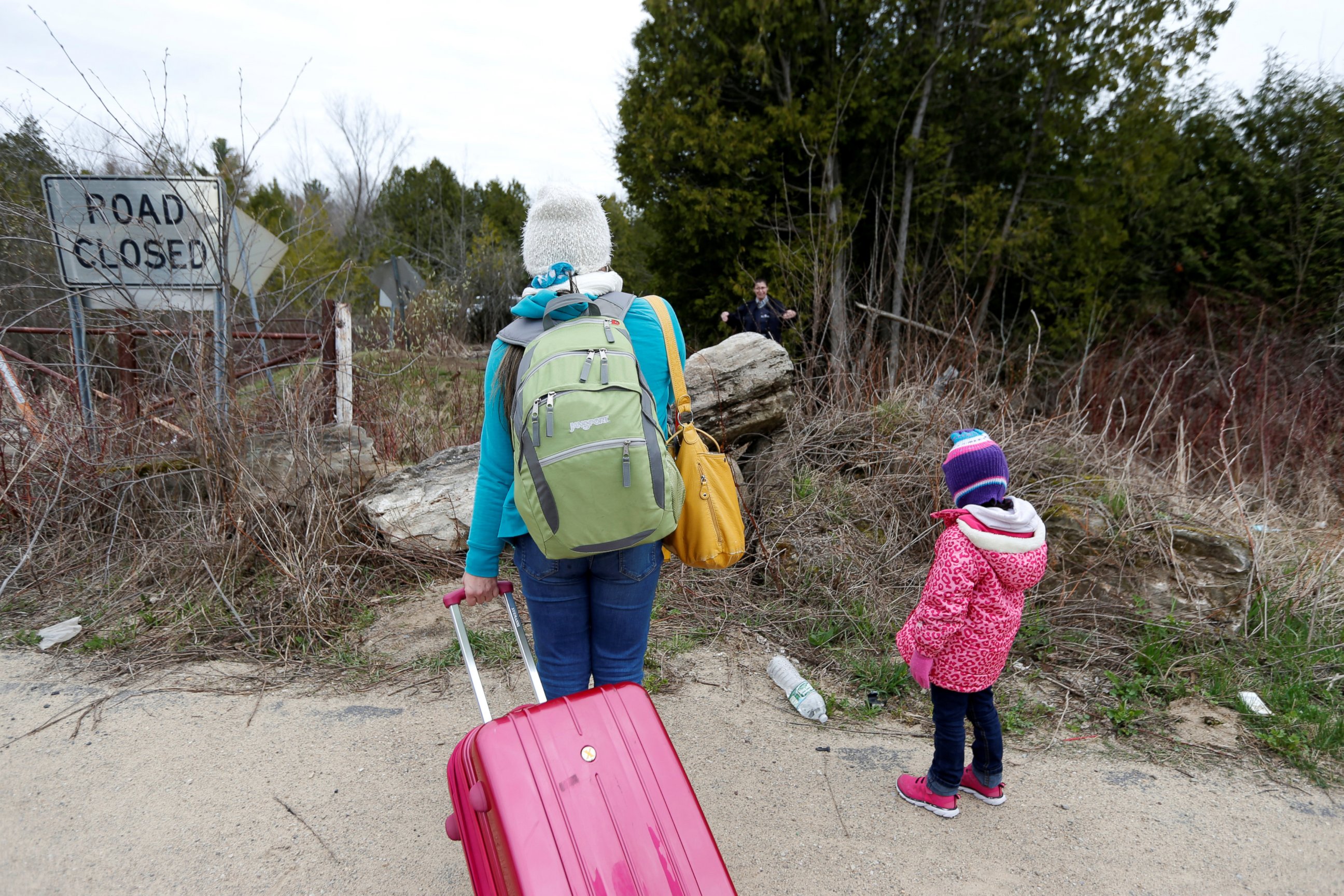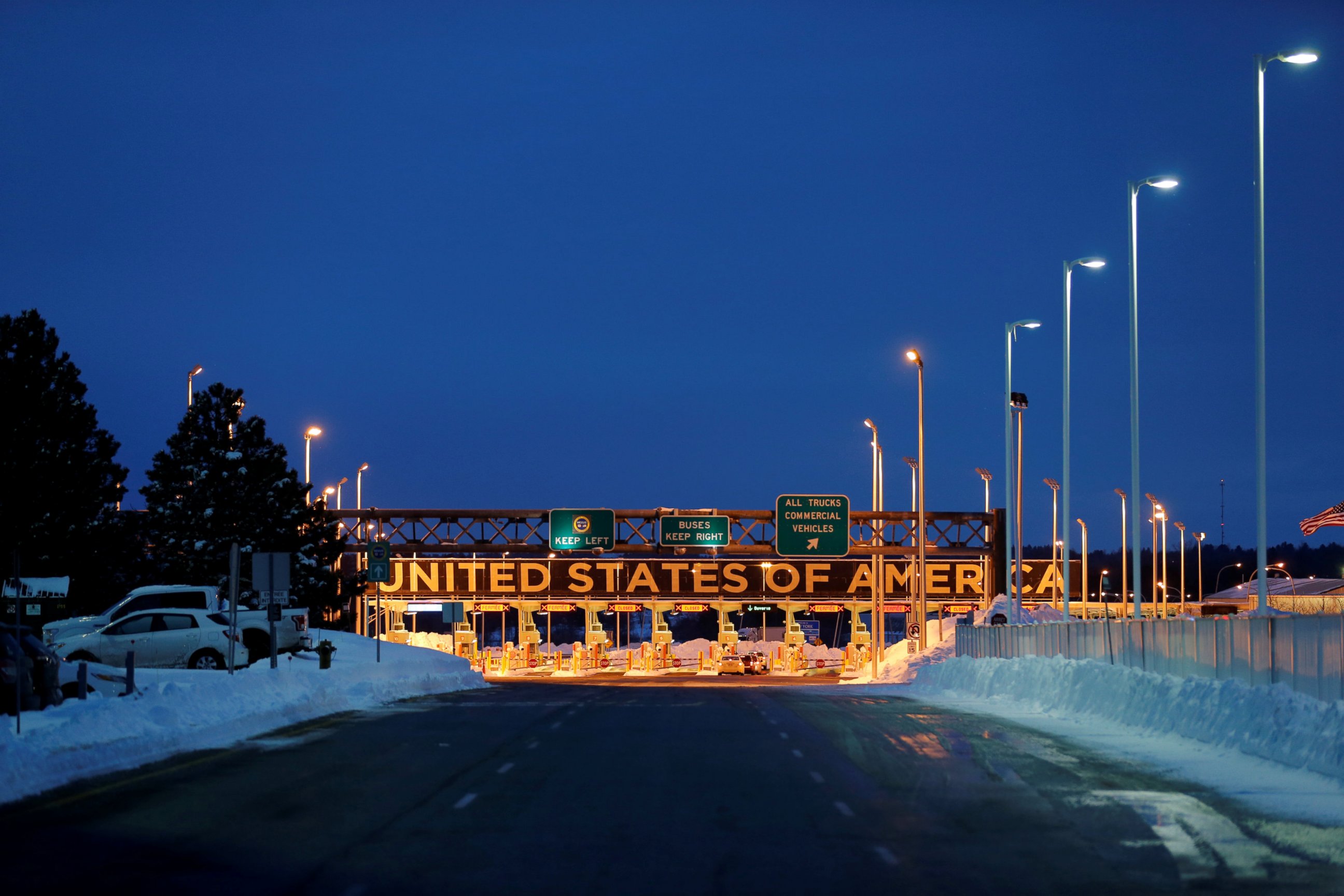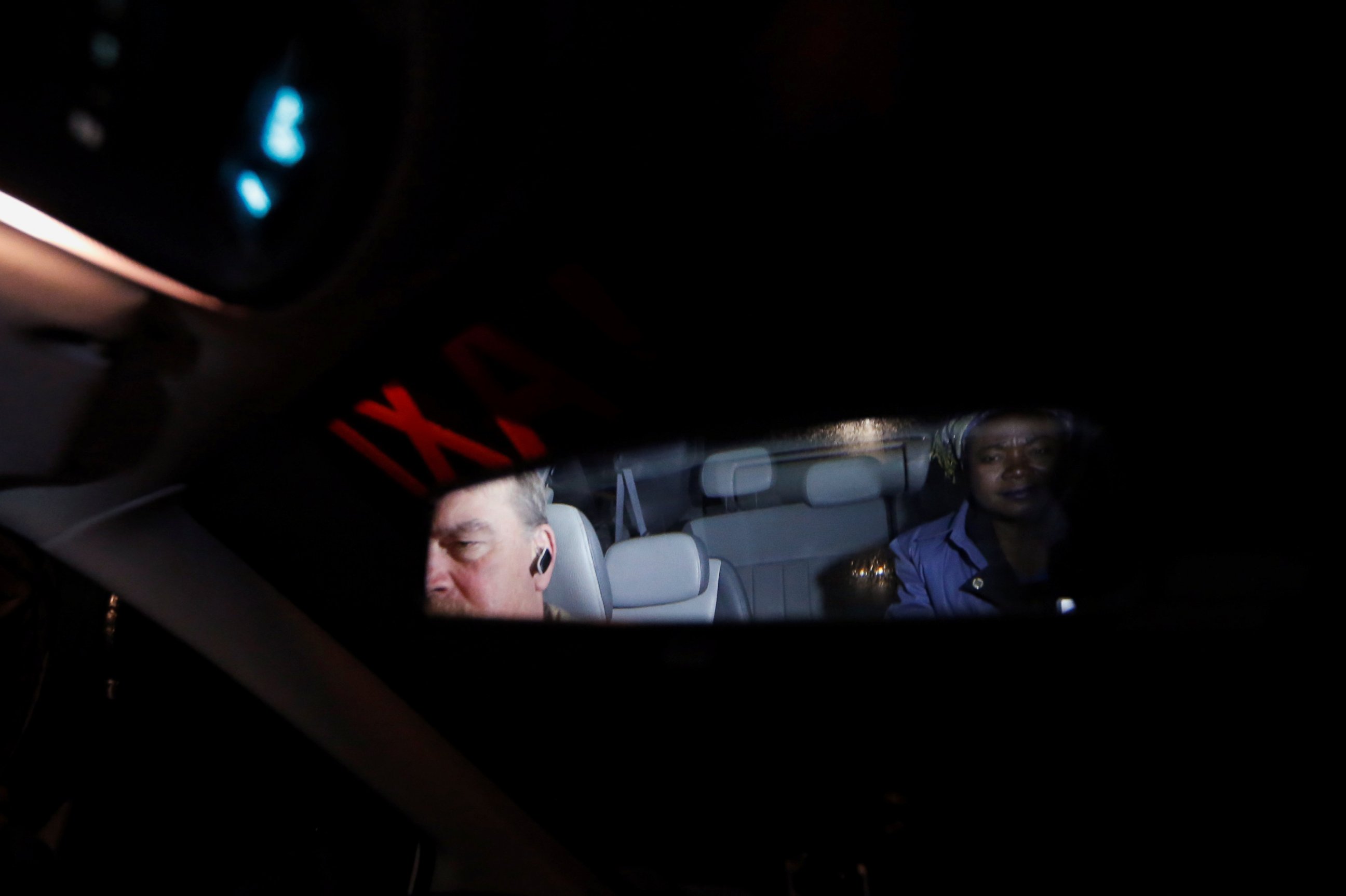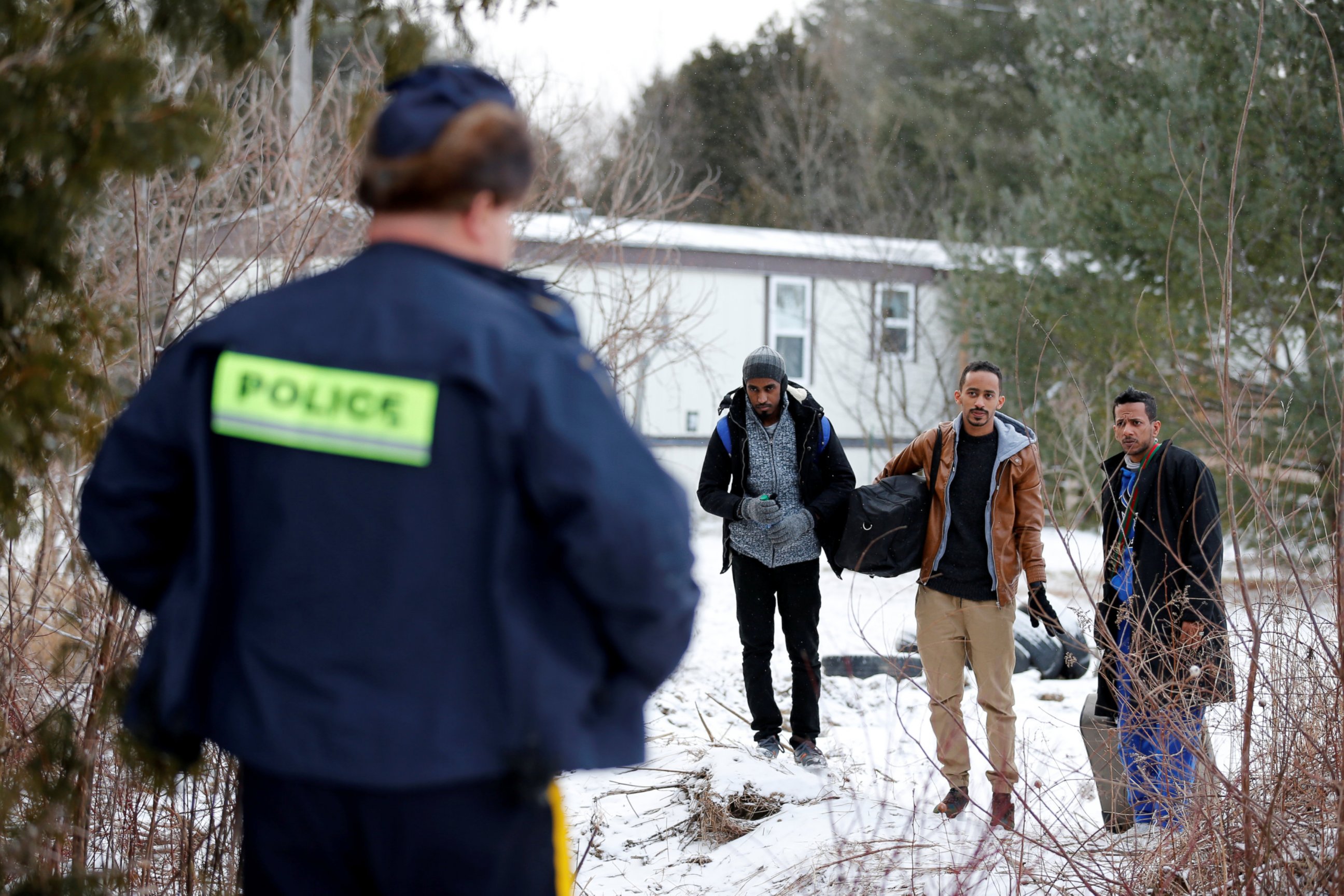Trump-voting cabbie drives migrants to Canadian border
Most of those border crossers had been living legally in the United States.
— -- Cab driver Curtis Seymour got the call at 3:30 a.m. to pick up a passenger at the Greyhound bus station in Plattsburgh, New York, about 25 miles (40 kilometers) south of the Canadian border.
An older Haitian woman wearing a purple and yellow headwrap, mauve lipstick and big gold earrings descended from the bus with two handbags, a backpack and a suitcase. Seymour placed her luggage in the car, and asked where she was headed.
"Canada," the woman, who asked to be identified only by her first name, Cilotte, said in broken English. "No police," she added.
Seymour, 62, who has driven the same streets in upstate New York for more than a decade, voted for Donald Trump in the Nov. 8 presidential election, partly because of his tough stance on immigration.
"I would vote for him all over again," Seymour said. "But it's more complicated than that."

Since Trump was elected, Seymour has had a front seat view of the other side of the immigration debate, ferrying some of the roughly 2,000 people who have crossed illegally into Canada this year.
Most of those border crossers had been living legally in the United States, including people awaiting the outcome of U.S. asylum applications. But Trump's tough talk on illegal immigration has spurred a wave of asylum seekers to leave for Canada, whose government they view as more welcoming to migrants.
There, they have begun applying for asylum, citing continued fears of persecution or violence in their homelands, including Somalia and Eritrea.
After arriving in border towns such as Plattsburgh, many use cabs to cover the final miles to the Canadian crossing. Seymour said he usually makes the run a few times every week.
Once registered as a Republican but now an independent, Seymour said Trump's rhetoric made many of his border-bound patrons fearful. He said that while some asylum seekers were a crime risk, most of his passengers would be "assets to this country."

"Trump's immigration policies are strong. They are one of the reasons why I voted for him. But these people are human beings no matter where they came from," Seymour said.
"It's not like they're aliens from another world or something."
He also acknowledged that he has to make a living.
"Of course I don't love all my passengers, but I certainly don't hate any of them," he said.
In the rush to get out of the cab and into Canada, travelers often drop items. The border is strewn with evidence of hurried escapes: a luggage tag, two baby bottles, one mitten, a wheel that fell off a suitcase, a stroller, an empty pack of cigarettes, a packed lunch.
One man from Somalia left behind his U.S. employment authorization card, which won't expire until September 2017. It read: "NOT VALID FOR REENTRY TO THE U.S."
Others abandon belongings too heavy to carry, which Seymour donates to drop-off centers around town.
Passengers who do not speak English, Seymour said, sometimes use different techniques for communication.
"One woman with her child spoke no English whatsoever and just drew me a picture of a fence."

Since November, he has joined the cabbies awaiting passengers at the bus station headed to the border, usually working Monday to Saturday, from midnight until 9 a.m. A Reuters reporter accompanied Seymour on three overnight shifts.
As the bus doors swung open on a recent Wednesday morning, the cab doors followed suit, with drivers rushing up to the bus.
"Taxi! Taxi! Taxi!" solicited one driver.
"Going to the border? I'll take you there for real cheap," another yelled.
Seymour opted to lean against his white van and let a passenger, Cilotte, come to him. The bus driver had called him minutes before to tell him to be on the lookout for the woman.
About 10 minutes later on a two-lane highway running north from Plattsburgh, Seymour looked back at Cilotte in his rearview mirror. "You're OK," he said repeatedly.

"When we get there," he told Reuters, "I help them take their bags out of the car and I stay and watch and make sure they make it."
He added, "I tell them, 'Don't stop now.' But some of them stop. They just stand there. They freeze."
Families seeking to cross at the official port of entry in Champlain, New York, are typically charged a flat rate of $60. Those who want to cross more discreetly pay between $65 to $75 to be driven to a nearby dead-end street surrounded by farmland. From there, they cross a ditch and a small hill, then walk into Canada.
Seymour estimated that about 90 percent of his customers choose the dead-end street, knowing they likely will be arrested by the two Royal Canadian Mounted Police officers who stand guard.

"But that's what they want," he said. "As long as they're detained in Canada, they don't care."
At 4 a.m., Seymour and Cilotte reached the border. The Mounties had their flashlights on.
Seymour helped Cilotte with her bags. "They won't hurt you," he said.
"Right now you are in the United States," the Mounties warned. "If you come any further, you will enter Canada illegally."
Again, Seymour told Cilotte, "You're OK."
One Mountie asked Seymour: "You encouraging her to cross the border?"
"No," he said, hands in pockets. "She's just scared."
"You can leave anytime now," the Mountie responded.
"When I'm ready," Seymour said. "When she's ready."
Photography by Christinne Muschi and reporting by Melissa Fares of Reuters




